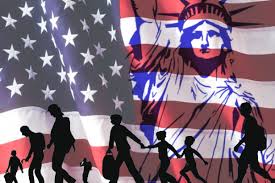Chamber Blog

Immigration Developments: Order Extends and Expands Ban on U.S. Entry For Certain Nonimmigrant Workers
June 29, 2020 | Katie Tranter; DBL Law
On June 22, 2020, President Trump issued his administration’s latest action to curb immigration into the United States, restricting entry by several different classes of immigrants and nonimmigrant workers. President Trump issued a Presidential proclamation suspending the entry of individuals into the U.S. on select nonimmigrant visas, including H-1B, H-2B, J-1, and L-1 visa holders, as well as their dependents. The order does not impact foreign nationals currently in the U.S., who may continue to seek extensions and changes to visa status, as well as pursue permanent residency. However, impacted workers with approved petitions who are located outside the country likely can no longer seek a visa stamp at a U.S. consulate or embassy abroad.
This order is an expansion of President Trump’s April 22, 2020, executive order, which put a hold on green cards for certain family members of U.S. citizens and permanent residents who reside overseas; immigrants who come to the U.S. as part of the annual diversity lottery; and a limited number of workers sponsored by employers while still living abroad. That order did not affect nonimmigrant visas, which are used for temporary visits, study, or work in the U.S. However, the latest order brings nonimmigrant visas into the mix, suspending entry generally for H-1B, H-2B, L-1, and certain J-1 visa holders who are outside of the country as of June 24, 2020, and do not have an official travel document. The order makes exceptions for children and spouses of U.S. citizens, green card holders, foreign nationals seeking to enter the U.S. to provide temporary labor or services essential to the U.S. food supply chain, and foreign nationals whose entry would be in the national interest.
The J-1 visa limitations include those who are interns, trainees, teachers, camp counselors, au pairs. The J-1 limitation does not apply to categories such as college/university students, government visitors, physicians, professors, research scholars, secondary school students, etc.
The suspension will last through December 31, 2020, and may be continued “as necessary.” The impact of the order is to dramatically limit the issuance of new visas abroad. It is expected that the federal agencies tasked with enforcement of the proclamation will issue guidance providing further clarity on the new restrictions.
This order comes on the heels of the Trump administration’s defeat with respect to its attempt to overturn the Deferred Action for Childhood Arrivals DACA program. DACA was a program under the Obama administration to suspend deportation of individuals who were brought to the United States illegally as children. It allows these individuals to work and remain in the United States indefinitely until immigration reform addressed this issue. The DACA benefit can be renewed every two years. Under the Trump Administration, the program was to end on March 5 with no more renewals which would subject individuals to deportation once their current renewal ended. Last week, the U.S. Supreme Court ruled in a 5-4 decision that the Administration’s attempt to dismantle the DACA program was unlawful. In a decision based on technical reasoning, i.e. that the administration had not provided proper legal justification for ending DACA, Chief Justice John Roberts wrote in his opinion that the administration did not comply with the procedural requirement to provide a reasoned explanation for ending the program. The DACA program continues as a result, providing a reprieve for nearly 650,000 individuals living and working in the U.S.
Katie Tranter is an attorney with DBL Law. Her practice focuses in the areas of Employment Law and Civil Litigation.